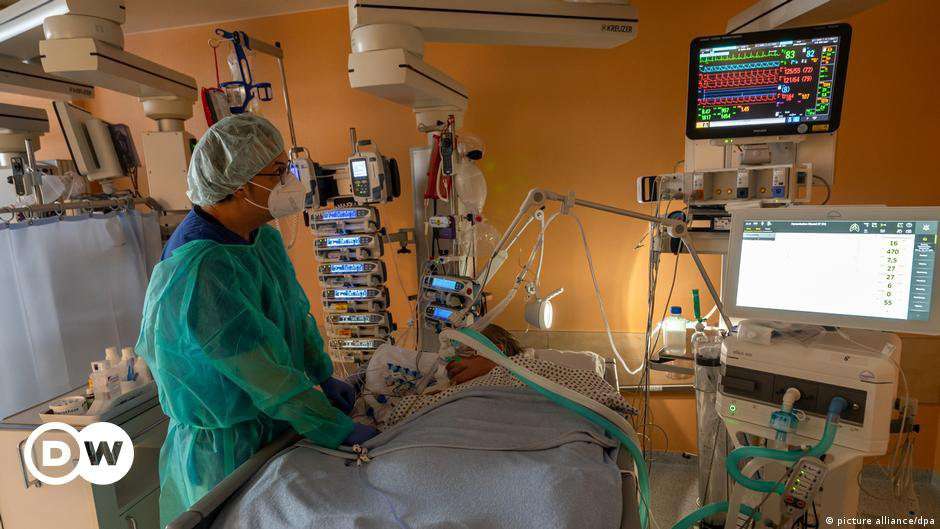Germany's Constitutional Court ruled on Tuesday that lawmakers must set out legally binding criteria to protect people with disabilities and preexisting conditions in pandemic-related triage situations.
Triage is the process of prioritizing patients for treatment according to either the seriousness of their illness or injury, or their chances of survival.
The court said legislators had violated the constitution by not previously setting out such rules. Germany's constitution, or Basic Law, states that "No person shall be disfavored because of disability."
The court has been deliberating on the issue since mid-2020. It has become an urgent issue once again as Germany faces a massive fourth wave of COVID infections driven by the highly infectious omicron variant.
Watch video 12:06 Germany's health sector struggles
The ruling came in response to a complaint by nine people with disabilities and previous illnesses who feared that, under present guidelines, doctors could give up on them if they became ill with COVID-19. They called for the state to lay down what selection criteria will be used to determine which patients continue to receive possibly lifesaving treatments if a choice has to be made when intensive care units are overwhelmed.
Previous "clinical and ethical recommendations" for triage were issued by the German intensive care association DIVI along with other medical associations. The complainants felt that these recommendations could see them disadvantaged, as the general state of health and existing illnesses of patients were included as selection criteria.
Watch video 11:59 Ethics of treating the sick
The DIVI responded to the complaint by saying that no one would be refused treatment on the basis of their age, previous illnesses or disability and that the criteria would only come into play when such factors lowered the likelihood of surviving COVID-19. But it also called for the state to make a ruling to give medical personnel legal security.
Advocates for the rights of patients have also voiced support for triage guidelines imposed by the state.
"Federal parliamentarians are the only ones who are democratically authorized to take such a decision," said Eugen Brysch, the chair of the German Foundation for Patient Rights.
He told the dpa news agency that the issue centered largely on who would be taken off ventilators.
"And that is something that the Bundestag should decide rather than economists," he said, adding that rules should be the same in all hospitals.
While you're here: Every Tuesday, DW editors round up what is happening in German politics and society. You can sign up here for the weekly email newsletter Berlin Briefing, to stay on top of developments as Germany enters the post-Merkel era.

andsens on December 28th, 2021 at 14:37 UTC »
I don't understand. Isn't that the entire essence of triaging? Doesn't triage exist to allow for clear pragmatic choices when idealistic ones are no longer possible? How can you prioritize using chances for survival without considering these factors?
hiles_adam on December 28th, 2021 at 14:07 UTC »
What do they mean by pre-exisiting conditions exactly?
If they rule out pre-existing conditions who then makes the judgment if care is applied to someone who is basically healthy and needs life saving treatment over someone with let’s say cancer and needs the same life saving treatment?
I’m not saying the person with cancer should die but isn’t this basic triage protocol to assess who has the best chance of survival?
It certainly would make deciding much harder if you can’t include these.
SillyWalrus19 on December 28th, 2021 at 13:59 UTC »
Justice minister has since announced he'll draft new legislation in line with today's court ruling